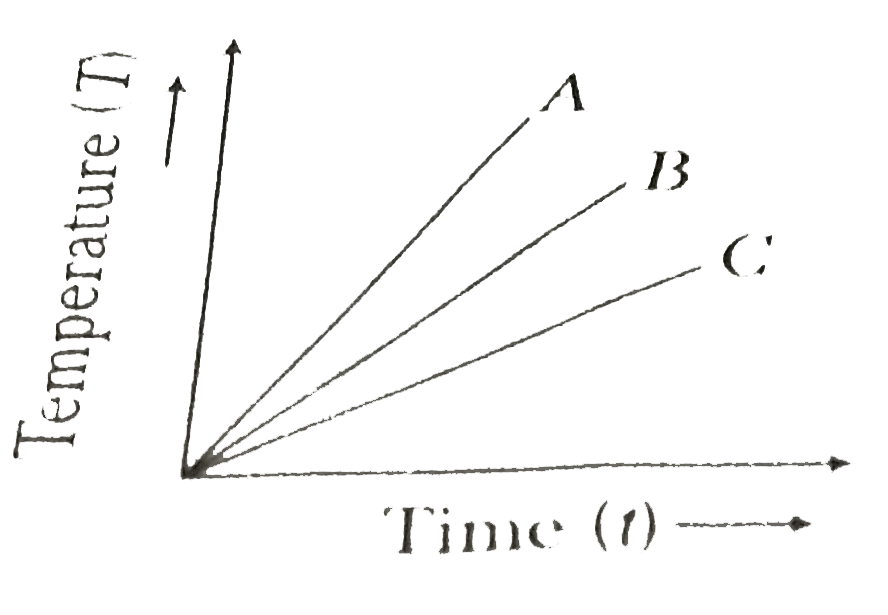If heat a supplied to a solid, its temperature
must increase
may increase
may remain constant
may decrease
The correct Answer is:B
Step by step video solution for If heat a supplied to a solid, its temperature by Physics experts to help you in doubts & scoring excellent marks in Class 11 exams.
Updated on:21/07/2023Similar Questions
Three moles of an diatomic gas are in a closed rigid container at temperature T (in K). 1 mole of diatomic gas gets dissociated into atoms without appreciable change in temperature. Now heat is supplied to the gas and temperature becomes 2T. If the heat supplied to the gas is x(RT), find the value of x.
View SolutionA container is filled with 20 moles of an ideal diatomic gas at absolute temperature T. When heat is supplied to gas temperature remains constant but 8 moles dissociate into atoms. Heat energy given to gas is
View SolutionConsider one mole of an ideal gas whose volume changes with temeperature as V=αT, where α is a constant. Heat is supplied to the gas to raise its temperature by ΔT. If γ adiabatic constant then choose the correct options.
View SolutionIf specific ehat capacity of a substance in solid and liquid state is proportional to temperature of the substance, then if heat is supplied to the solid intially at −20∘C (having melting 0∘C) at contant rate. Then the temperature dependence of solid with time will be best represented by:
View SolutionN moles of an ideal diatomic gas are in a cylinder at temperature T. suppose on supplying heat to the gas, its temperature remain constant but n moles get dissociated into atoms. Heat supplied to the gas is
View SolutionAn ideal gas is heated by 160J at constant pressure, its temperature rises by 50∘ and if 240J of heat is supplied at constant volume, temperature rises by 100∘C , then its degree of freedom should be
View SolutionA wire of length L0 is supplied heat to raise its temperature by T. if γ is the coefficient of volume expansion of the wire and Y is Young's modulus of the wire then the energy density stored in the wire is
View SolutionThe temperatures versus time graph is shown in figure. Which of the substance A,B and C has the lowest heat capacity if heat is supplied to all of them at equal rates.

View SolutionThe specific heat of many solids at low temperatures varies with absolute temperature T according to the relation S=AT3, where A is a constant. The heat energy required to raise the temperature of a mass m of such a solid from T = 0 to T = 20 K is
View SolutionHeat is added to a body. Does its temperature necessarily increase?
View Solution
